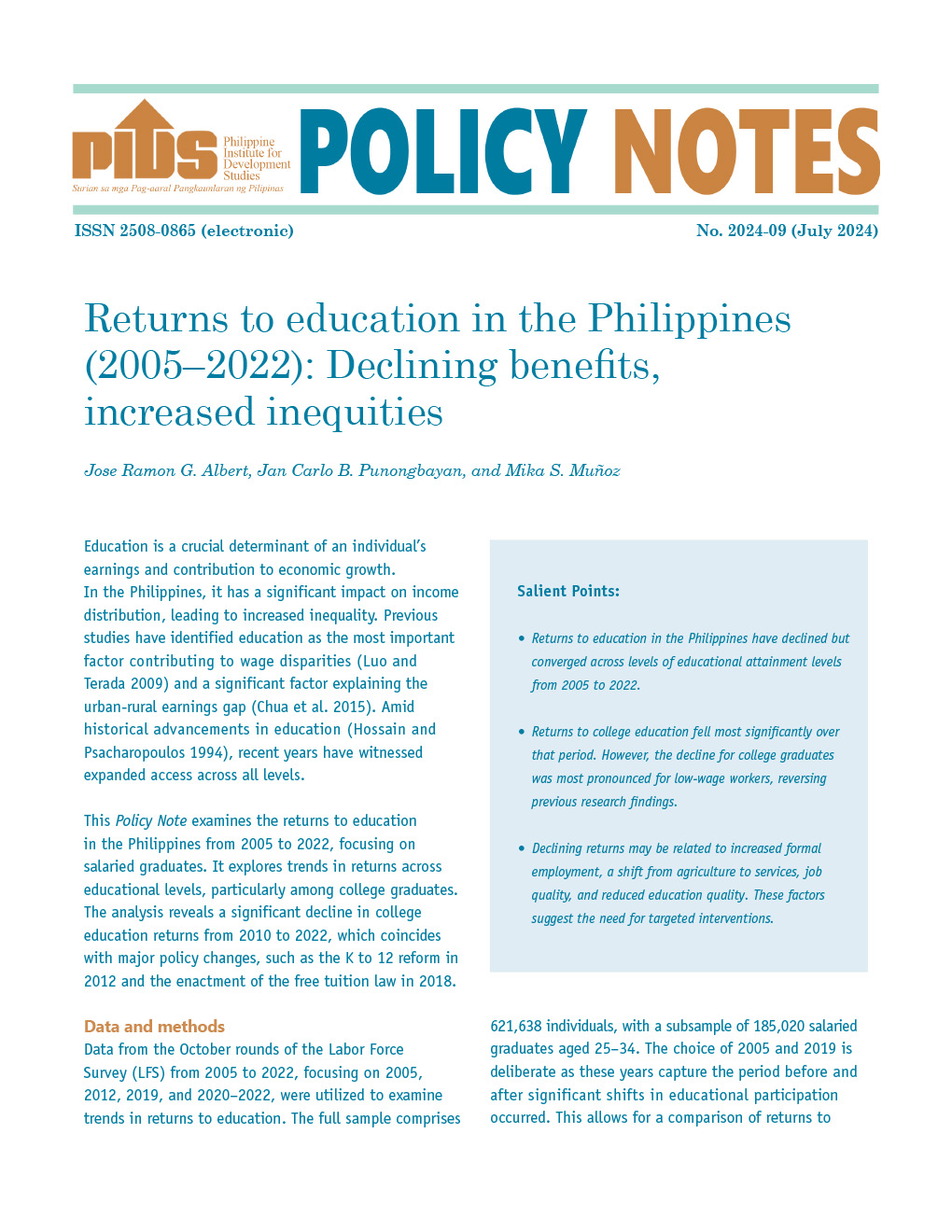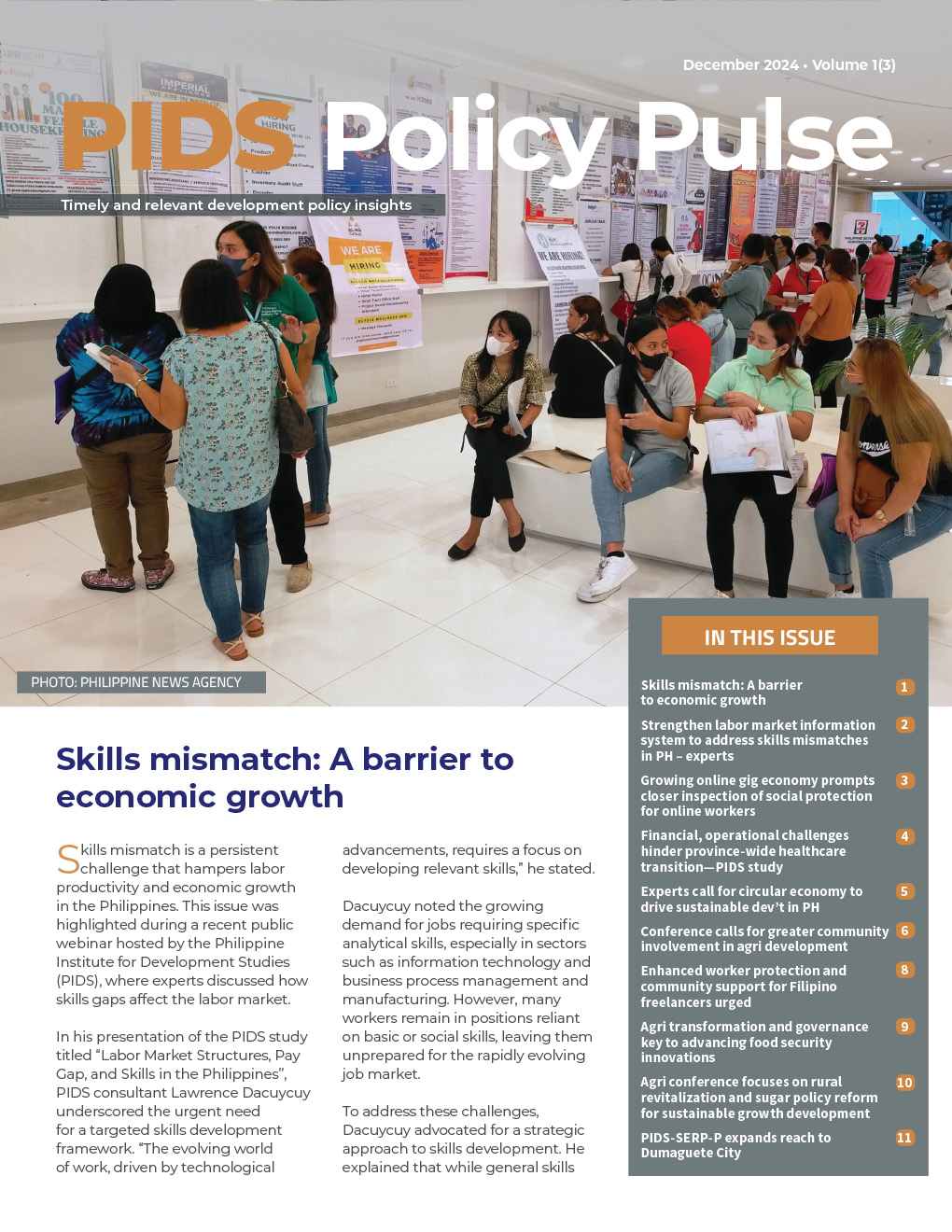
The rise of online work, both globally and locally, presents employment opportunities for Filipinos. However, policies and programs need to be in place to protect online workers.
This was emphasized in a recent study published by state think tank Philippine Institute for Development Studies (PIDS) authored by PIDS Senior Research Fellow Ramonette Serafica and Research Analyst Queen Cel Oren. It examined policies and issues relevant to online work in the country.
In their paper, the authors noted that the Philippines “is one of the most actively engaged countries in online or platform work”.
In terms of market size, it ranks third next to the United States and India. Filipinos are also perceived to be competent, price competitive, and technologically savvy. They are also known to have a good command of the English language and more familiarity with western culture.
However, while online work offers economic opportunities for Filipinos, Serafica and Oren said the government needs to ensure “decent work” for workers, especially with its diverse nature.
The United Nations defines decent work as “work that is productive and delivers a fair income, security in the workplace and social protection for families, better prospects for personal development, and social integration”.
According to the authors, while laws protecting workers already exist, these need to be reviewed and updated to respond to the issues confronting online workers.
“Achieving the decent work agenda will require a range of policy support and initiatives as the different types of workers and forms of online work imply that a one-size-fits-all policy may not capture and address the various issues that online workers face,” they pointed out.
Some challenges identified in the PIDS study include online workers’ employment status, access to social protection, and tax contributions.
In terms of employment status, the authors highlighted the diverse jobs and unsteady sources of income available to online workers. These result in their unclear employment status, ranging from freelancers, self-employed, employees, entrepreneurs, part-time workers, or platform workers. Consequently, this affects their access to social protection schemes.
Related to the social protection issue is encouraging online workers to maintain an active membership in voluntary schemes, as they may “find it challenging to make regular contributions or may not be motivated to voluntarily do so”.
Another challenge brought about by the unclear classification of online workers is taxation, wherein some rules are no longer appropriate to their nature of work.
“Some online workers have difficulty getting a residence certificate since local government officers require them to have storefronts, which is not applicable for online workers even if they consider themselves entrepreneurs,” the authors explained.
To help the government in formulating more applicable policies and programs for online workers, the study provided some recommendations.
One is to review and update current social protection schemes “to be responsive to the needs of new types of workers and work arrangements”. There should also be simplified and digitized registration and payment processes for membership.
To increase Filipino online workers’ competitiveness amid the global rise of online work, the authors encouraged the academe and other training institutions to pursue joint activities that will equip workers with soft and technical skills needed for the digital economy.
The government should also ensure access to adequate infrastructure, including reliable internet connectivity and affordable equipment.
In terms of improving the work conditions of online workers, the authors called for regular dialogue among the government, online platforms, and workers to ensure compliance with basic labor rights, such as just compensation, provision of written contracts, and a safe workplace.
Finally, regular data collection on the digital economy and establishment of a monitoring and evaluation system are recommended to help the government make informed policies that will benefit online workers. ###
This press release is based on the PIDS discussion paper titled “Exploring Policies and Initiatives for Online Workers in the Philippines”.











